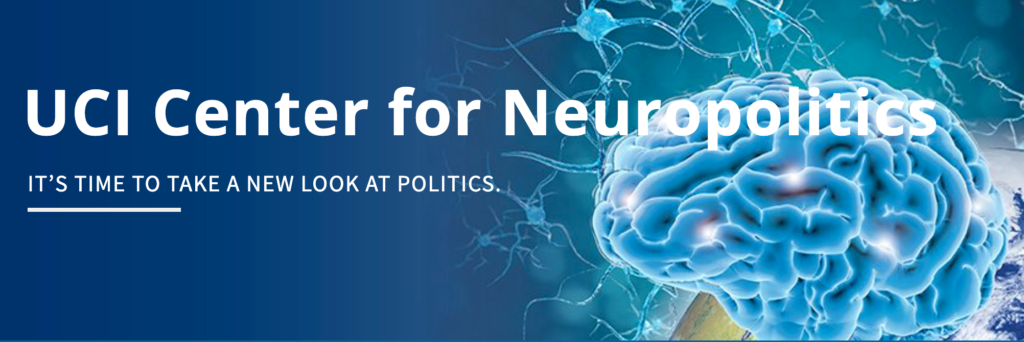
Neuropolitics
What is Neuropolitics?
Neuropolitics is a field of study that combines neuroscience and political science in order to better understand the decision-making process involved in political behavior and political decision-making. Why do we vote the way we vote? Why are current political systems structured the way they are? How does the way our brain processes information influence our political attitudes and beliefs?
These are all questions that neuropolitics aims to explore by applying research theories and techniques in neuroscience. An example of this is the use of advanced brain imaging technologies like functional magnetic resonance imaging (fMRI) and electroencephalography (EEG) to study how a person’s brain reacts to a specific political advertisement or a politician’s speech. The findings can help us understand how various stimuli affect brain activity and, in turn, political conduct.
Check out these videos to learn more about neuropolitics:
What are pathways to pursuing a career in neuropolitics?
There are a number of career paths available to a person interested in neuropolitics. Some include:
Political Consultant
Consultants have the facility of being able to work for various sectors. A person whose expertise is in neuropolitics can prove especially valuable to political campaigns as they can provide insights into identifying and targeting specific voter groups, crafting messages that resonate with potential voters, and enhancing voter engagement and turnout. A politician’s career may be greatly aided by using a neuropolitical consultant to enhance their campaign’s effectiveness.
Academic Researcher
Academic researchers typically work at a university or research institution, innovating ways to apply techniques and theories from a range of disciplines to continue shaping and evolving this relatively new field. Most academic researchers hold a PhD in a relevant discipline, such as political science, neuroscience, or an interdisciplinary program.
Policy Analyst
Policy analysts commonly find employment with government agencies or non-profit organizations, where they assist in the formulation of new laws and policies or engage in the reevaluation of existing ones with the aim of enhancing their effectiveness. A person with expertise in neuropolitics can use their understanding of cognitive and biological foundations of political behavior to design policies that account for how individuals actually behave, rather than relying solely on assumptions of rational decision-making.
Education in Neuropolitics:
While you don’t necessarily need a specific academic credential for most careers in this field, you can get started by exploring degrees that help you gain a solid understanding of brain anatomy, cognitive processes, and social sciences. There are currently limited programs that focus on behavior and politics, and none are designed specifically for “neuropolitics”. However, there are various other fields that can serve as a pathway in training for neuropolitics. It’s important also to note that practical experience through internships, research projects, or collaborations with experts in the field can significantly enhance your prospects in neuropolitics. Additionally, pursuing advanced degrees such as a master’s or Ph.D. can open up further opportunities for research and specialized work in the field.
- Undergraduate: At the undergraduate level, those interested in neuropolitics may want to gain exposure to neuroscience, psychology, political science, sociology and related fields.
- Graduate: At the graduate level, one could pursue Masters or Doctoral training in International Affairs & Relations (with research and courses in neuroscience, political behavior & political psychology), Political Behavior & Identities, and Political Science or Applied Politics (with a focus on political behavior studies & neuroscience)
‘
Resources and programs related to neuropolitics:

UCI Center for Neuropolitics
The Center for Neuropolitics at UC Irvine contributes to the ongoing political dialogues by engaging the multi-disciplinary expertise of neuroscience, political science, neurology, psychiatry, psychology, and philosophy. The Center for Neuropolitics frequently presents seminars about topics neuropolitics via Zoom, free to the public. They also hold an Annual Symposia that focuses on addressing the most compelling issues of the day, and incorporate the views of national and international leaders on the topics.

Neuropolitics Research Labs
The Neuropolitics Research Lab at the University of Edinburgh produces transdisciplinary research, utilizing developments in the cognitive neurosciences, to shed new light on political attitudes, identities and decision-behaviors in collaboration with colleagues from the social sciences, psychology, informatics and the brain-imaging centers.

Neuropolitics in Action:
Neuropolitics in Action: Witness a real-time study showcasing how a consortium of market research firms employed neuroscience measurements to assess voter reactions during the 2022 presidential debates.

The Radicalized Mind Podcast
This episode of The Radicalized Mind, “Ideology & the Brain” delves into understanding cognitive characteristics and their impact as vulnerability factors for ideaologically-motivated behavior. The podcast overall explores the psychological processes that underpin political, religious, and nationalistic beliefs.
